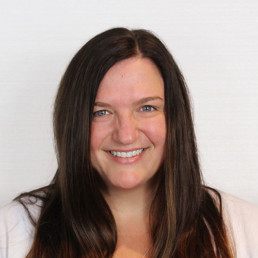WATCH OUR RECENT BRIEFING
The United States is in a caregiving crisis. The pandemic has thrown into sharp relief a system that isn’t just broken—it’s never worked. Child and elder care are unaffordable. Paid leave, nonexistent, with the US trailing all other developed countries. And caregivers themselves work for horrifyingly low wages—all because we assume that when a crisis strikes, women will just figure it out.
This was supposed to be the year for us to change things, for us to make caregiving—and the people who power it—a priority. With Build Back Better on the line, what’s still possible? And how can we all help make progress happen?
At The Meteor’s recent briefing, The Caregiving Crisis: What Comes Next, advocates and legal experts gave us an overview of the current crisis and shared how we can all take action. We heard from:
- Amanda Brown Lierman, executive director of Supermajority
- Nicole Jorwic, chief of advocacy & campaigns at Caring Across Generations
- Reshma Saujani, founder of Marshall Plan for Moms
The conversation was moderated by filmmaker Paola Mendoza, founding member of The Meteor and filmmaker, artist, and activist. You can watch the briefing here—and sign up for our newsletter to stay in the loop about upcoming events.
HIGHLIGHTS
At our briefing, experts shared insights and action steps we can all take.
On the current crisis:
“The lack of care infrastructure…that lack of investment has been an invisible drive to inequality—gender inequality, racial inequality, as well as discrimination based on disability.”—Nicole Jorwic, chief of advocacy & campaigns at Caring Across Generations
On the work ahead:
“We are the majority of voters and at some point, if we are organized…they will have to respect us…We need to be revered and we need to be feared. And that’s what we have to get to. And building that base is the work.”—Amanda Brown Lierman, executive director of Supermajority
On where we can make change right now:
“It is an embarrassment that we can bail out Delta Airlines, but we have not bailed out moms. And we cannot wait for the government to act, to give relief to mothers and working women…We’re starting to mobilize workplaces; start getting women to say, ‘I want paid leave. I want you to subsidize my childcare.’” —Reshma Saujani, founder of Marshall Plan for Moms
HOW TO TAKE ACTION
Here’s what we can be doing this week, next month, and next year to, as moderator Paola Mendoza put it, “build sisterhood, to continue to use our rage to organize, to change the systems that are not working for us.”
1. Hold legislators on both sides of the aisle accountable, says Nicole Jorwic, for making good on their promises to make major investments in childcare, home and community-based care, and to not forget about paid leave.
2. Share your stories with legislators—and with friends and family. Being open about it with people that are close to you and in the workplace, adds Jorwic, clears the path for others to do so as well. Show your story, too, stresses Amanda Brown Lierman, who used to nurse and pump in front of Congressional members in meetings when she was at the DNC. “So that was just, I will make you uncomfortable until you change your mind on this.”
3. Think about bigger solutions to the structural changes that need to happen. Our 40-year-old home and community-based service system has never been invested in and we have a nonexistent paid leave system, says Jorwic. How can we make the changes that need to happen so that every caregiver is supported?
4. Follow and support the organizations our speakers represent—Caring Across Generations, Supermajority, and Marshall Plan for Moms.
5. Think about your workplace as a place where you can organize, says Reshma Saujani. “Let’s not go back to breastfeeding in closets,” she says, adding it will help build a new reality for 2024 where “we’ve mobilized as a bloc and they can’t think twice about not giving us paid leave, affordable childcare, the childcare tax credit.”
6. Look up to see how your legislators are voting and what have they said on the record, says Brown Lierman. “Call them, thank them if they’re doing something helpful….call them out if they’re not actively working in support of that.”
7. Vote! Make sure that people know you care about these issues and that you’re voting on these issues. Just expressing rage is not enough; we must also demand accountability, says Brown Lierman. “They can ignore our primal screams, but they cannot ignore our votes.”
Don’t miss the takeaways from earlier workshops: Roe on the Line: An Abortion Access Briefing; One Year Till the Midterms: A Voting Rights Briefing; After Texas: The Fight for Abortion Access; Justice for Mothers This Year: The “Momnibus” and More Ways to Make Change Happen; and Reproductive Rights and Justice: What’s Ahead in 2021.
SPEAKERS
Amanda Brown Lierman
Amanda Brown Lierman is the executive director of Supermajority, an organization aimed at training and organizing women across age, race and background to push for women’s equity. Previously, Amanda was the national political director for Rock the Vote, executive director of the White House’s National Women’s Business Council, campaign director at For Our Future, and organizing director for the Democratic National Committee during the 2018 midterms.
Nicole Jorwic
Nicole Jorwic is the chief of advocacy and campaigns at Caring Across Generations (CAG). At her core, Nicole has always been an advocate, supporting her brother Chris, who has autism, to live his best life; and fighting for a better care system for her parents, three aging grandparents, and other family caregivers, people with disabilities, and direct care workers. Prior to joining CAG, Nicole was the senior executive officer of policy at The Arc of the United States, a disability rights organization.
Reshma Saujani
Reshma Saujani is a leading activist and the founder of Girls Who Code and the Marshall Plan for Moms. She is the author of the forthcoming book Pay Up: The Future of Women and Work (And Why It’s Different Than You Think). Reshma has spent more than a decade building movements to fight for women and girls’ economic empowerment, working to close the gender gap in the tech sector, and most recently advocating for policies to support moms impacted by the pandemic. Reshma is also the author of the international bestseller Brave, Not Perfect; and her influential TED talk, “Teach girls bravery, not perfection,” has more than five million views globally. Reshma began her career as an attorney and Democratic organizer.
Paola Mendoza
Paola Mendoza is a director, activist, author, and artist whose work focuses on human rights. A co-founder of The Women’s March, she served as its artistic director. A founding member of The Meteor, she is currently directing a feature-length documentary about domestic workers and adapting her most recent book, the YA novel Sanctuary, into a motion picture.



